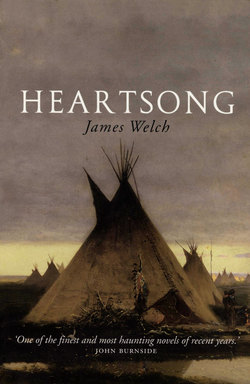Читать книгу Heartsong - James Welch - Страница 13
На сайте Литреса книга снята с продажи.
ОглавлениеCHAPTER FIVE
Two days after Martin St-Cyr’s account of the “lost soul” in the “entrails” of the Préfecture appeared in Le Petit Marseillais, not much had happened, which was disappointing to the young reporter. In his wilder daydreams, he had imagined a monstrous public outcry—rallies on the steps of the Préfecture and in the place of the Palais de Justice; marches by trade unionists and socialists; candlelight vigils by religious and social justice groups; perhaps even a visit from Paris by the Minister of Justice. In his more sober moments, he thought there would be a small but vigorous protest by ordinary citizens, who often gathered to demonstrate against one thing or another. Usually these citizens chose small issues, such as the price of baguettes going up another centime. Or a new ordinance that restricted the amount of garbage that could be left at the curb.
While St-Cyr’s article didn’t create the massive reaction that he would have liked, it did bring several people down to the Préfecture. An old priest led them, and he did talk of the outrageous and inhuman treatment of the Peau-Rouge, one of God’s simplest creatures. He spoke of compassion and mercy, of prayer and forgiveness. Soon he was rambling, preaching a sermon that had less to do with the plight of this particular Peau-Rouge than with the fate of uncivilized savages the world over, all of whom were God’s simplest creatures.
St-Cyr stood at the back of the small group, counting the disappointingly obedient, well-behaved heads. There were no more than twenty-five of them, also disappointing, so he decided to double it in his follow-up story. There were five gardiens stationed like pickets before the great doors. Perhaps he could mention something about suppression, the potential for violence, but even as he took notes he began to have doubts about his career as a writer.
His editor had at first seemed unmoved by his account of Charging Elk’s imprisonment. But one might chalk that up to a deficiency in the man’s personality. He didn’t seem to have one. And when St-Cyr had asked to be allowed to write the story himself, even though he was merely a police reporter, he had expected a terse rejection, perhaps a sharp bark of mirthless laughter. But the editor sat for a long moment, perhaps two, with his fingers steepled before his grim face. In his black suit and with his bald head gleaming under the overhead light, he looked like an undertaker lost in thought while the mourners wept.
Just as St-Cyr was thinking of trying to walk out the door of the small office backward, retracing his footsteps as if to erase this awful moment, the editor stood and slapped his palm on the desk. St-Cyr almost jumped straight up at the gesture.
“Can you do it?” the editor said in his even undertaker’s voice.
“Yes, of course, Monsieur Grignan. I will do my best.”
“Very well.” The editor looked at the small crystal clock on his desk. “You have two hours. Take it to Fauconnier when you are finished. Tell him to make the necessary adjustments.”
St-Cyr had been pleased that Fauconnier, the veteran journalist, had not found it necessary to make too many changes. He crossed out “brutish” in St-Cyr’s description of the jailer (“He might eat you next time”) and “cold-blooded” in reference to the whole police department (“We have to work with them even if they are coldblooded bastards”).
In the end, Fauconnier had clapped St-Cyr on the shoulder and said, “I think you are in love with this Indien,” a comment that the young journalist took as a compliment.
That night he celebrated with champagne and fruits de mer, followed by a visit to Fortune, who swore she had seen the Peau-Rouge the other day, poking in the refuse piles near the Quai de Rive Neuve. As she slipped into her kimono, she said, “He was a small wiry sort with stiff hair, like a Levantine—except he wore a suit of feathers.”
